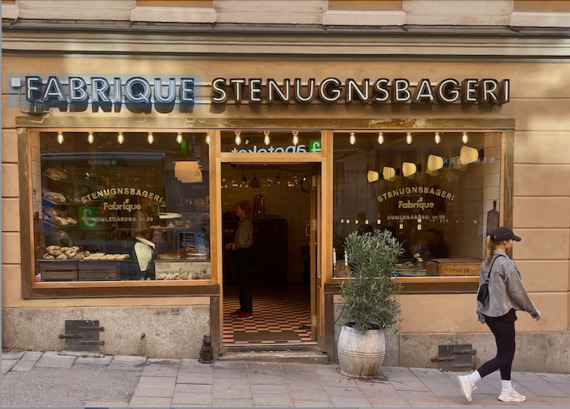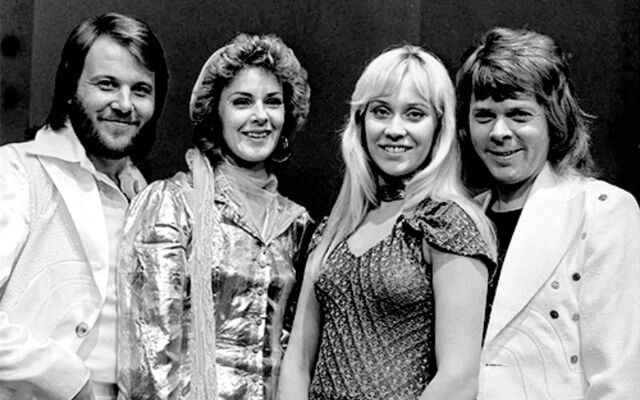Ireland's love of ABBA is legendary and ever growing, so what's behind this enduring intergenerational affection for the Swedish supergroup?
Back in the 2010s, a friend of mine from Spain asked me why the hell ABBA are still being played in Ireland.
“They're on the radio every day like it's the late 1970s,” he groused. “I hear them in the pubs and restaurants, I even hear people singing all their songs when the pubs close.”
I think I might have blushed at this last remark, because I may or may not have walked home with some friends singing "Gimme! Gimme! Gimme! (A Man After Midnight)" the night before – and until he spoke, I never gave it much thought.
In Ireland, ABBA is just a thing that happens.
Thinking about it, on my more philosophical nights, I have opted to sing deeper cuts like "The Winner Takes It All" – or a spontaneous and unaccompanied rendition of perhaps my favorite pop song of all time "S.O.S."
One memorable night in Greece about two years ago, we sang "Chiquitita" (every verse and chorus) at the top of our voices whilst walking home with some new pals from a fun night out in Chania.
Now I think I know what the Irish secret is: ABBA is four-part harmonies, unforgettable melodies, genius songwriting, and undeniable international cultural impact. Their decades-long achievement is so staggering that it easily rivals bands like The Beatles and The Stones when you think about it.
But why Ireland, why all the love?
Well, if there's one thing the Irish know how to do it's how to have an unironic good time and that's what ABBA has always been about, too. We were made for each other.
Look, I admit in other ways this long-standing romance is still surprising. Sweden and Ireland are so unalike culturally. Think of Sweden and people immediately mention Ikea, Absolute Vodka, Swedish meatballs, the Skarsgård family, the Netflix smash "Young Royals," and, of course, ABBA.
It's an impressive cultural haul by any measure, but on a recent trip to their capital Stockholm to finally visit the world-famous ABBA museum (courtesy of Visit Stockholm), I discovered there's so much more to this stylish city that they'd like you to know about.
Sweden offers world-class hotels, restaurants, bakeries, coffee shops, craft beers, museums, galleries, castles, and a vibrant nightlife but Stockholm is where Sweden really sets out its stall. Rivaling Tokyo for its spotless public streets and always on-time busses and subways, it's a Venice of the North that sprawls across 14 islands where getting around by ferry boat is a daily occurrence.
Crisscrossed with public parks and scenic waterways, Stockholm manages to feel both metropolitan and municipal in a way that took me by surprise. It's big but also small vibe is the perfect expression of the inner life of the people, who privately enjoy the spectacle of their own vaunted royal family for example, but publicly scoff at any form of social pretension.

Fikka is the name Swedes give to the ritual of coffee and a pastry and they have perfected it.
The first clue I had about the contradictions that make up this fascinating city was at the passport control desk at the airport, it turned out. Arriving with a horde of weary American tourists from a red eye direct from the States, I joined a long and slow-moving line as names and photographs were scrupulously checked.
When I finally reached the counter, a gruff, non-smiling passport officer (in Sweden you don't smile if there's no reason) grilled me about what I planned to do in the capital city. As an ardent ABBA fan, I replied visit the ABBA Museum and a stay in the upscale Hotel Rival (owned by ABBA's own Benny Andersson).
My obvious enthusiasm was met with a slowly raised eyebrow. “You know,” said the officer, “there's a lot more history here than ABBA.” I took note of her tone and replied, “Well, most countries would be delighted to have a band as accomplished as ABBA in their history.”
Another blank stare. “We didn't really understand how big they were,” the customs officer sniffed. Then she handed me back my passport without another word. Apparently this meant welcome to Sweden. Greta Garbo couldn't have been more aloof.
Arriving at the main train station in town, a row of taxis sat waiting. It turns out that the hawker cabs, which will charge you an eye-watering premium, look almost exactly like the official cabs, which will charge you a more competitive rate. Untrained eyes will see no difference in their liveries. This means that your first moments in the city could begin with a rip-off. Beware.
When I reached Hotel Rival, a boutique hotel in the upscale Mariatorget district, I was ready for a luxury interior and a warm shower, both of which this ideally located venue supplied with ease.
The chic, future-retro interior featured a giant, unmistakably 1970s picture of ABBA having a soft-focus picnic in their heyday, so it was a bit like staying inside one of the band's glamorous album sleeves (in the best possible way).
Notably LGBT welcoming and supplying fortifying breakfasts and good coffee along with Swedish pastries (I could write an entire chapter on the magnificence of Swedish baking or their tradition of fika, which translates to a coffee and pastry break), the hotel surpassed all my expectations and made visiting Stockholm a pleasure.
It is a beautiful place, Stockholm. Spotless, architecturally remarkable and I imagine particularly gorgeous in the high summer (I visited in September.) It's served by a terrific public transport subway, bus, and ferry infrastructure that makes commuting a breeze.
The ABBA Museum is a very fun day out for both super-fans and the ABBA curious. Featuring their iconic outfits, gold discs, album cover mock-ups for photo opportunities, and even recoding booths to try your own hand at one of their famous songs, it's nostalgic and informative and it quietly puts the case for the band's membership in the pantheon of pop – do not miss the merch store next door.

The Vasa museum is one of the ten most visited in the world for a reason.
Nearby is the remarkable Vasa museum (every visit to Sweden should include a mandatory ticket). Named after the ship that capsized and sank on her maiden voyage in the Stockholm harbor in 1628, where the water preserved her integrity.
Over 98% of the ship's original structure survives, including its masts and sails, so it does not look like a wreck but a ship awaiting the start of the next voyage, exactly as it did in the winter of 1628. Looking at it feels like time traveling. No wonder the Vasa Museum has made it onto the top 10 list of the world´s best museums. It's a jaw-dropping, multi-story, perfectly preserved time capsule on a huge scale.
Sweden is famously progressive and socially tolerant and that warm welcome extends to LGBT visitors, who will intuitively feel at ease on the streets and clubs.
Everyone speaks English which makes getting around easy and cash-free is a thing here, so don't worry about carrying big bills in your wallet.
Getting to know this fabulous city – and getting to thank them for the music – is a trip worth taking. But ABBA fans, Eurovision fans, art fans, and LGBT visitors may find the visit particularly rewarding. What are you waiting for?




Comments